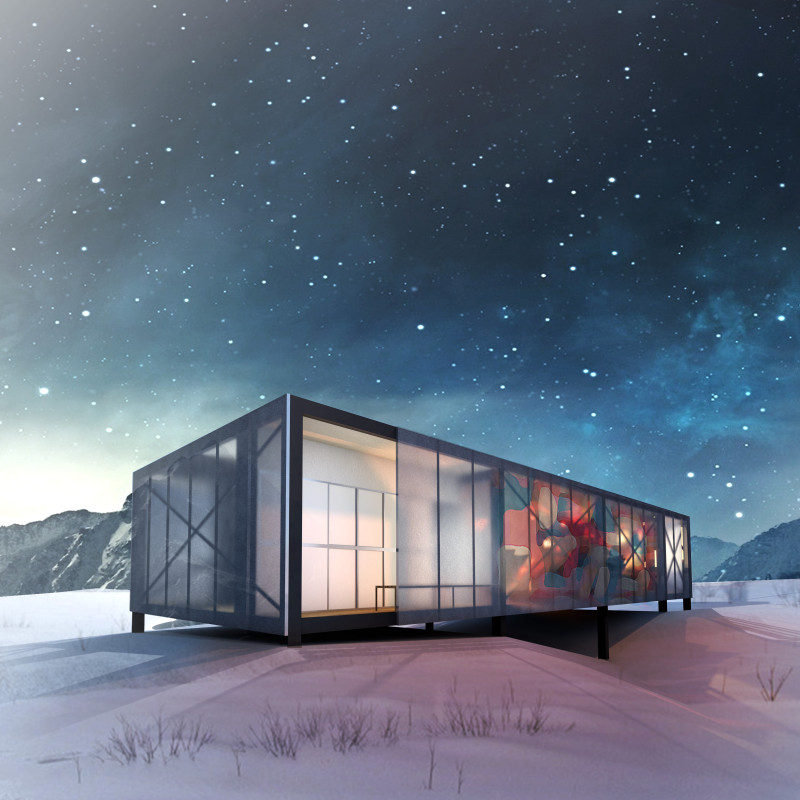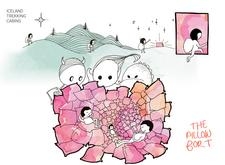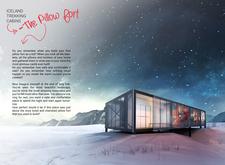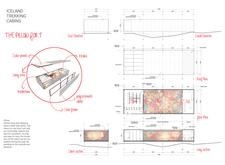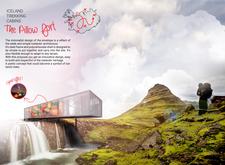5 key facts about this project
### Architectural Report: The Pillow Fort, Iceland Trekking Cabins
#### Overview
Located in Iceland, the Pillow Fort is a trekking cabin design that merges childhood nostalgia with contemporary architectural principles. Positioned within the rugged Icelandic landscape, this cabin aims to provide outdoor enthusiasts a comfortable retreat after long treks. The design emphasizes a sense of safety and imagination, with the intent to foster relaxation and community among its users.
#### Materiality and Sustainability
The materials chosen for the Pillow Fort reflect a commitment to sustainability and functionality. A lightweight steel frame ensures structural integrity and ease of transport, maintaining stability amidst the variable Icelandic climate. The inclusion of translucent polycarbonate sheets enhances natural lighting within the living space while providing durability and thermal insulation.
Uniquely, the design incorporates pillows as essential elements of both living and sleeping areas, contributing comfort and insulation that can be adjusted according to external temperatures. Furthermore, the integration of solar panels underscores an eco-conscious approach by harnessing renewable energy to meet the cabin's operational needs. The interior finishes harmonize with the surrounding environment, enhancing the experience of living in the landscape.
#### Design Flexibility and Community Interaction
The Pillow Fort features a flexible design that allows for customization in spatial configuration, adapting to different activities such as sleeping, resting, and socializing. This adaptability promotes communal living, reflected in sketches that depict shared experiences among trekkers. The aesthetic of the cabin not only captures Iceland's natural beauty but also instills a sense of warmth and playfulness, contrasting with the often harsh exterior environment.
This design positions the Pillow Fort as a progressive solution within the realm of outdoor accommodations, emphasizing creativity and community connection while respecting Iceland’s cultural heritage.


